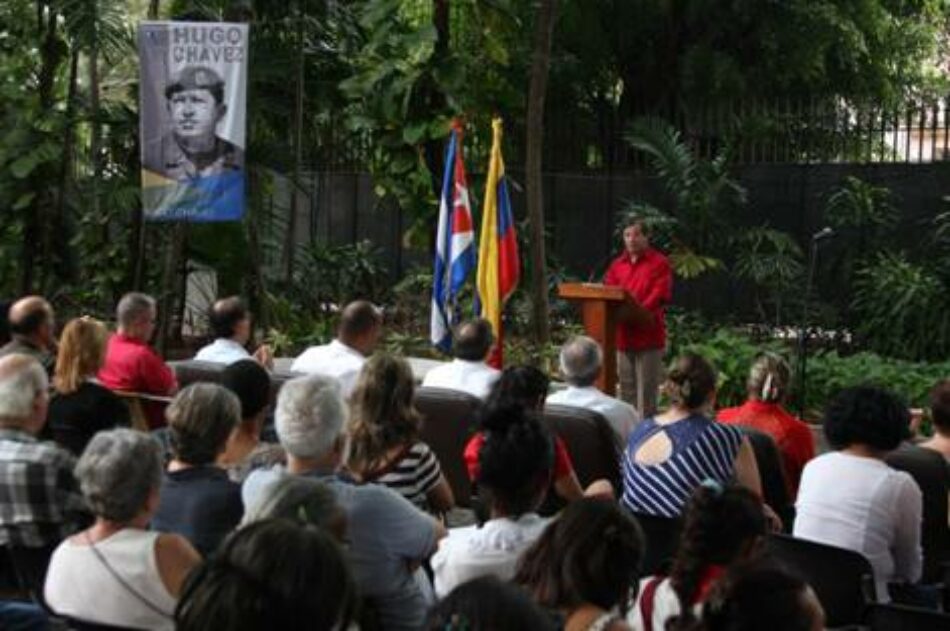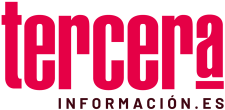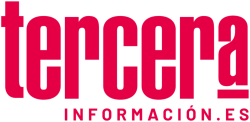Rinden en La Habana homenaje a Chávez y a Fidel en el Día de la Dignidad Latinoamericana y Caribeña
"Fue Chávez quien inició el proceso integrador y junto a Fidel creó en 2004 el ALBA y en 2005, PetroCaribe; luego nació UNASUR (2008) y la CELAC (2010). Pero aún están las fuerzas del imperialismo actuando contra los pueblos, alertó el jefe de la diplomacia bolivariana en Cuba".

Lo que Fidel y Chávez no dejaron hecho, está por hacer. Hagámoslo!
“Chávez logró lo que pocos hombres alcanzan en la vida, vencer a la muerte para trascender en el tiempo. Él se instaló para siempre en el corazón de su pueblo y en el de la América toda”, expresó el vicepresidente del Instituto Cubano de Amistad con los Pueblos (ICAP), Fernando González Llort, en acto de recordación del líder de la Revolución Bolivariana a propósito del cuarto aniversario de su siembra, y por el Día de la Dignidad Latinoamericana y Caribeña, celebrado el viernes 3 de marzo.
El homenaje, realizado en la sede del ICAP con la asistencia de organizaciones políticas, sociales y de masas cubanas; el Comité Internacional Paz, Justicia y Dignidad a los Pueblos; y la embajada de la República Bolivariana de Venezuela en La Habana, es una de las numerosas actividades que se realizan en la isla para homenajear a Hugo Chávez, el mejor amigo que tuvo la Revolución Cubana.
“Bolívar y Chávez compartieron la misma idea integracionista, de enlace político, social, cultural y económico de América Latina y el Caribe; nos dejó el legado de llevar a la práctica la solidaridad, la lealtad, el verdadero amor hacia los semejantes para consolidar la unidad de las fuerzas revolucionarias”, añadió el también Héroe de la República de Cuba, uno de los cinco combatientes que sufrieron prisión en Estados Unidos por sus actividades antiterroristas.
González Llort rememoró la profunda amistad, “la más fecunda de dos líderes de nuestra América en el presente siglo”, que unió a Chávez con el líder histórico de la Revolución Cubana. “Ambos jefes militares entrelazaron como nunca antes la formidable historia que une a Venezuela y Cuba desde los tiempos de Bolívar y Martí, y aportaron de manera decisiva a la unión y los profundos cambios que acaecieron en América en los últimos 15 años”, apuntó.
Asimismo manifestó que Chávez fue un visionario, fundador de una nueva época para la región, ya que tuvo la decisión de enfrentar al imperio y luchar por la construcción de la gran patria latinoamericana.
Su pensamiento político, consideró el Héroe, traspasó las fronteras venezolanas y debe ser enarbolado como bandera de lucha de los pueblos que siguen bregando por su libertad.
“Un bolivariano, un chavista, jamás se rinde”
La fraternidad entre los máximos líderes de Venezuela y Cuba, hizo que la recordación se extendiera además a Fidel, fallecido el 25 de noviembre pasado.
“Pensaron (los imperialistas) que con la siembra de Chávez y Fidel se cerraba un ciclo” y emprendieron un recrudecimiento de la ofensiva contra los pueblos revolucionarios, enunció el diputado Héctor Rodríguez Puig, presidente del Bloque de la Patria de la Asamblea Nacional (AN) Venezolana en palabras de salutación a los presentes.
El también vicepresidente del Partido Socialista Unido de Venezuela (PSUV) resaltó que estos cuatro años han sido de dificultades para su país, que se sumaron a la herida por la pérdida del Chávez. En rápida cronología, destacó que 2014 estuvo marcado por las guarimbas y la violencia; 2015 por la caída del precio mercantil del petróleo hasta casi el costo de producción de este, el principal rubro exportador de la nación; y 2016, por la pérdida de la mayoría revolucionaria en la AN que ha impedido el impulso de las transformaciones sociales de la Revolución Bolivariana.
Asimismo, enumeró, como parte de la arremetida imperial, el golpe de Estado parlamentario en Brasil, la persecución antikirchnerista y el desmontaje de los logros sociales en Argentina, así como una ofensiva contra gobiernos como los de Ecuador y Bolivia.
“Tal vez desconocieron que un pueblo como el venezolano jamás se rinde. Un bolivariano, un chavista, jamás se rinde” resumió.
“Lo que Fidel y Chávez no dejaron hecho, está por hacer”
Encabezado por el canciller Bruno Rodríguez Parrilla, miembro del Buró Político del Partido Comunista de Cuba (PCC); José Ramón Balaguer Cabrera, miembro del Secretariado del Comité Central del PCC y encargado del Departamento de Relaciones Internacionales de esa organización; y Kenia Serrano Puig, presidenta del Icap; el acto tuvo también como orador el embajador venezolano en Cuba, doctor Alí Rodríguez Araque.
El diplomático hizo un recorrido histórico de las últimas décadas de su país, a partir de la fastuosa toma de posesión de Carlos Andrés Pérez y El Caracazo, en 1989, que dio origen a la situación revolucionaria antineoliberal y al surgimiento del líder Chávez, quien luego transformaría la sociedad con su llegada a la Presidencia mediante elecciones en 1998 y el posterior cambio de la Constitución por una más inclusiva y democrática.
Rodríguez Araque destacó que Chávez retomó el ideario integracionista y antimperialista de Simón Bolívar, quien como más tarde José Martí, soñó con una América Latina unida.
Fue Chávez, recordó, quien inició el proceso integrador y junto a Fidel creó en 2004 el ALBA y en 2005, PetroCaribe; luego nació UNASUR (2008) y la CELAC (2010). Pero aún están las fuerzas del imperialismo actuando contra los pueblos, alertó el jefe de la diplomacia bolivariana en Cuba.
“Como Martí dijera en referencia a Bolívar, podríamos decir que lo que Fidel y Chávez no dejaron hecho, está por hacer. Hay mucho por hacer. Entonces, hagámoslo!
Y podríamos decir como José Félix Ribas en su arenga antes de la Batalla de La Victoria: “No podemos optar entre vencer o morir, necesario es vencer”, concluyó.
Durante el homenaje se hicieron sentir las voces de destacados cantautores cubanos y venezolanos: Raúl Torres, Luna Manzanares, Reinier Valdés, Amaranta Pérez, Sandino Primera y Alí Primera, quienes a través del lenguaje musical recordaron a los amigos comandantes, hoy y siempre sembrados en el corazón de los pueblos.
(Prensa Embajada de Venezuela en Cuba, 6/3/2017).
Inglés;
What Fidel and Chávez Did Not Accomplish Remains to Be Done. Let’s do it!
Tribute paid to Chávez and Fidel in Havana on the Day of Latin American and Caribbean Dignity
“Chávez accomplished what few men achieve in life: to defeat death and transcend in time. He settled forever in the heart of his people and of the entire America”, stated the vice president of the Cuban Institute for Friendship with the Peoples (ICAP) Fernando González Llort, in the event in tribute to the leader of the Bolivarian Revolution on his fourth death anniversary, and on the Day of Latin American and Caribbean Dignity celebrated on Friday, March 3.
The tribute, paid at the venue of ICAP with attendance of Cuban political, social and mass organizations, the International Committee Peace, Justice and Dignity for the Peoples, and the embassy of the Bolivarian Republic of Venezuela in Havana, is one of the numerous events celebrated in the island to honor Hugo Chávez, the best friend the Cuban Revolution ever had.
“Bolívar and Chávez shared the same integrationist idea of political, social, cultural and economic link of Latin America and the Caribbean; they left us the legacy to practice solidarity, loyalty, and true love to our fellowmen to consolidate the unity of the revolutionary forces, added González, also a Hero of the Republic of Cuba and one of the five Cuban fighters who were imprisoned in the United States because of their anti-terrorist activities.
González Llort recalled the deep friendship that joined Chávez with the historical leader of the Cuban Revolution – “the most fruitful of two leaders of our America in the present century”. “Both military chiefs intertwined like never before the formidable history that unites Venezuela and Cuba since the times of Bolívar and Martí, and made a decisive contribution to the union and profound changes occurred in America in the last 15 years”, he added.
He likewise indicated that Chávez was a visionary, founder of a new age for the region, since he decided to face the empire and struggle for the construction of the great Latin American fatherland.
“His political ideas”, considered the Hero, “went beyond the Venezuelan borders and should be upheld as banner of struggle of the peoples that continue fighting for their freedom.”
“A Bolivarian, a Chavista, Never Surrenders”
The brotherhood between the top leaders of Venezuela and Cuba made the commemoration extend also to Fidel, deceased last November 25.
“(The imperialists) thought that Chávez’ and Fidel’s death closed a cycle”, and strengthened the offensive against the revolutionary peoples, stated deputy Héctor Rodríguez Puig, president of the Fatherland’s Block at the National Assembly of Venezuela, in his greeting to the audience.
Rodríguez Puig, also vice president of the United Socialist Party of Venezuela (PSUV, the Spanish acronym) underlined that these four years have been difficult for his country, in addition to the blow of Chávez’ death. In a quick chronology he mentioned that 2014 was characterized by counterrevolutionary revolts and violence; 2015 by the fall of oil´s price almost to production cost, main export product of that nation; and 2016 by the loss of the revolutionary majority in the National Assembly, preventing the impulse to the social transformations of the Bolivarian Revolution.
He also mentioned, as part of the imperialist attack, the parliamentary coup d’État in Brazil, the persecution against Kirchner’s followers and the cancellation of social achievements in Argentina, and the offensive against the governments of Ecuador and Bolivia.
“Perhaps they ignored that a people like the Venezuelan never surrender. A Bolivarian, a Chavista never surrenders”, he summarized.
What Fidel and Chávez Did Not Accomplish Remains to Be Done
Headed by chancellor Bruno Rodríguez Parrila, member of the Political Bureau of the Communist Party of Cuba (PCC); José Ramón Balaguer Cabrera, member of the Secretariat of the Central Committee of the PCC and head of its International Relations Department, and Kenia Serrano Puig, president of ICAP, the meeting also included the Venezuelan ambassador to Cuba, doctor Alí Rodríguez Araque, among the speakers.
The diplomat made a historical review of the recent decades in his country, starting from the luxurious coming into office of Carlos Andrés Pérez and the Caracazo in 1989, which originated the revolutionary and anti-neoliberal situation and the emergence of Chávez as leader, who was to transform society with his arrival to the presidency through elections in 1998 and the subsequent change of the Constitution for a more inclusive and democratic one.
Rodríguez Araque highlighted that Chávez took up again the integrationist and anti-imperialist ideas of Simón Bolívar, who, like José Martí years later, dreamt of a united Latin America.
It was Chávez, he recalled, who initiated the integrationist process and together with Fidel created ALBA in 2004 and PetroCaribe in 2005. UNASUR (2008) and CELAC (2010) were born later. But the forces of imperialism are still acting against the peoples, warned the head of the Bolivarian diplomacy in Cuba.
“As expressed by Martí referring to Bolívar, we could say that what Fidel and Chávez did not accomplish remains to be done. There is much to do. Then, let’s do it!”
And we could say like José Félix Ribas in his harangue before the Battle of La Victoria: “We cannot choose between winning or dying; it is necessary to win”, he concluded.
The voices of outstanding Cuban and Venezuelan troubadours were heard during the tribute –Raúl Torres, Luna Manzanares, Reinier Valdés, Amaranta Pérez, Sandino Primera and Alí Primera– who through the language of music recalled the commanders friends, today and forever deeply rooted in the heart of the peoples.
(Press Department of the Embassy of Venezuela in Cuba, 6/3/2017)


